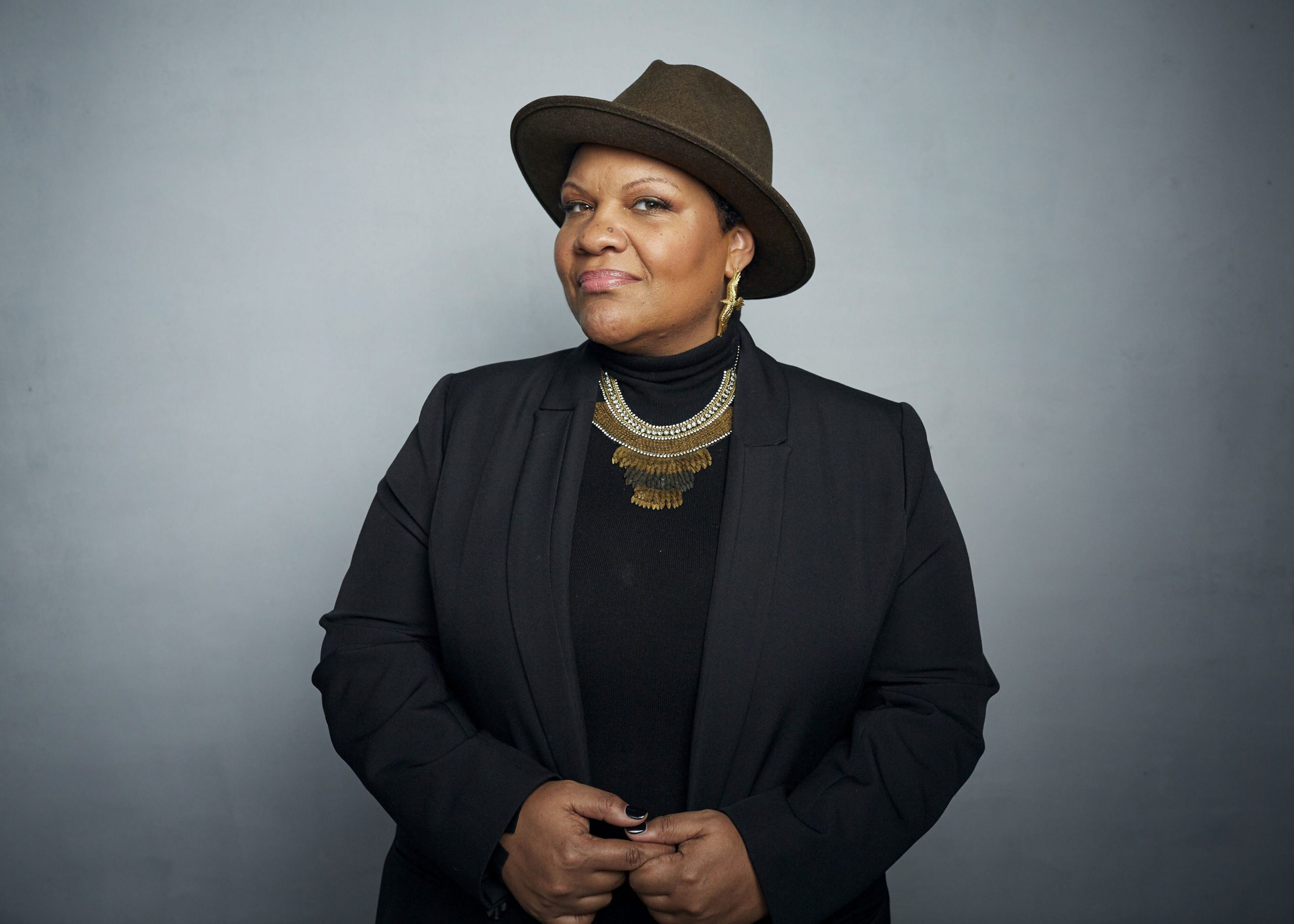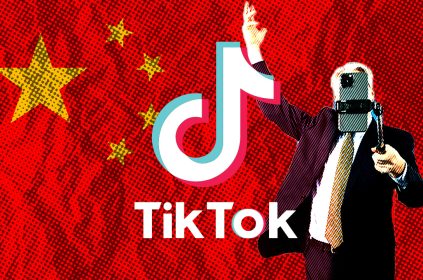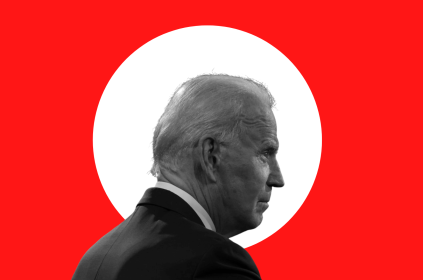If Radha Blank had a tagline for her film, “The Forty-Year-Old Version,” it would be: “You don’t age out of your passion.”
Blank wrote, directed and stars in her debut film, a heavily autobiographical tale, shot in black-and-white and on 35mm, about a middle-aged playwright in Harlem struggling to fulfil her career’s earlier promise. Faced with unappealing options, like a Harriet Tubman musical put on by white producers, she turns to an old passion, hip-hop, and begins performing as RadhaMUSprime.
The film — laceratingly funny, relentlessly frank, wholly original — made its lauded premiere at the Sundance Film Festival where Blank won a directing prize and Netflix acquired it. It begins streaming Friday.
Blank, who has written for the Spike Lee series “She’s Gotta Have It” (on which she was also a producer) and “Empire,” first began the project as a web series that would have culminated in a mix tape. The death of her mother derailed the series, and Blank realized “The 40-Year-Old Version” needed a bigger canvas. Lena Waithe (“Master of None,” “Queen & Slim”) came aboard as a producer.
In an interview back when “The Forty-Year-Old Version” was landing at Sundance, Blank — a proud New Yorker who, like her character, struggled to get her plays mounted before rapping under a pseudonym — talked about her delayed but inevitable arrival.
AP: What compelled you to start writing this?
BLANK: I was fired from a film job. This is like before I was writing for TV. I got a job. Someone had seen a play of mine and they hired me to adapt a book. And I got fired off the job. And I was kind of devastated and felt a little powerless and just decided, you know what? (Expletive) it. I’m going to make a web series so that I’m in charge. No one can fire me. About two weeks before we were going to shoot the first two episodes, my mom passed away and it pretty much devastated my life. Like we were like Dorothy and Sophia domestically, as a viewer of “The Golden Girls.” We shared the same birthday and she’s the person who nurtured all these storytelling seeds in me. I was probably going to quit anything creative because my biggest champion and friend was now gone. I was going to go back to school and become a social worker. I’m glad I didn’t. I probably saved more children by not becoming a social worker.
AP: Is your protagonist you?
BLANK: It’s me but a heightened version. She is who I wish I could be all the time. She tells it like it is. What we have in common is how we use rejection to fuel an idea. My character, the idea of her becoming a rapper is a joke until she starts rhyming. And for me, when I first decided I wanted to shoot this in black and white. Everyone was like, why would you do that? It’s a matter of trusting your impulses.
AP: How does it feel to be making your filmmaking debut at this stage in your life?
BLANK: “Auteurs” are reserved for older filmmakers. And groundbreaking, fresh films seems to be associated with young filmmakers. I’m somewhere in the middle. I’ve been telling and crafting stories for over 20 years. When it came time to make the film, I knew exactly what it is I wanted to say. For people who know me and know my work, it was just a matter of time before I got here. It’s kind of this idea that we never stop learning about who you are. You can have revelations about yourself and what you should be doing at any age.
AP: And that includes rapping for you. But you bring a different perspective to hip-hop.
BLANK: It’s all of the bravado of hip-hop but it’s from a person whose body is changing. There’s some hot flashes in there. AARP is sending me (expletive) in the mail. I know a lot of people who feel that way, I just don’t see it reflected in mainstream culture. Especially with hip-hop. I love this culture. I am the same age as hip-hop culture. Some of the culture is over-sexualized and over-saturated and so loud. That’s part of why I wanted to film it in black and white. Black and white cools it down.
AP: How would you describe your film’s connection with Judd Apatow’s “The 40-Year-Old Virgin”?
BLANK: Honestly, I’m just like appropriating his (expletive). People appropriate Black culture all the time. I’m like, “Hey, Judd. I’m comin’ for you!” I think he will have a great sense of humour about it, but I’m totally appropriating his (expletive). I love it when I say “Forty-Year-Old Version” and they go, “That move came out 15 years ago.” And I go, “Nope! V-E-R-S-I-O-N.” But also trying to stay in the spirit of Judd Apatow, Black protagonists are quirky and awkward and can’t figure things out and are having identity crises at 40. I would hope one day my films can be in the canon of his storytelling. I lived in L.A. for about three years and even though I look like I might have blended into the cool arts scene, I always felt like Larry David. There are people who look like me who have those odd moments where there are clashes of culture right in front of them.
___
Follow AP Film Writer Jake Coyle on Twitter at: http://twitter.com/jakecoyleAP
Jake Coyle, The Associated Press















